17 start with N start with N
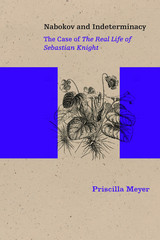
In Nabokov and Indeterminacy, Priscilla Meyer shows how Vladimir Nabokov’s early novel The Real Life of Sebastian Knight illuminates his later work. Meyer first focuses on Sebastian Knight, exploring how Nabokov associates his characters with systems of subtextual references to Russian, British, and American literary and philosophical works. She then turns to Lolita and Pale Fire, applying these insights to show that these later novels clearly differentiate the characters through subtextual references, and that Sebastian Knight’s construction models that of Pale Fire.
Meyer argues that the dialogue Nabokov constructs among subtexts explores his central concern: the continued existence of the spirit beyond bodily death. She suggests that because Nabokov’s art was a quest for an unattainable knowledge of the otherworldly, knowledge which can never be conclusive, Nabokov’s novels are never closed in plot, theme, or resolution—they take as their hidden theme the unfinalizability that Bakhtin says characterizes all novels.
The conclusions of Nabokov's novels demand a rereading, and each rereading yields a different novel. The reader can never get back to the same beginning, never attain a conclusion, and instead becomes an adept of Nabokov’s quest. Meyer emphasizes that, unlike much postmodern fiction, the contradictions created by Nabokov’s multiple paths do not imply that existence is constructed arbitrarily of pre-existing fragments, but rather that these fragments lead to an ever-deepening approach to the unknowable.

Ellen Pifer challenges the widely held assumption that Nabokov is a writer more interested in literary games than in living human beings. She demonstrates how Nabokov arranges the details of his fiction to explore human psychology and moral truth, and she argues her case with style.
Focusing on the most highly wrought and aesthetically self-conscious of Nabokov’s novels, Pifer shows how he deploys artifice to bring into bold relief what is real. In her chapter on King, Queen, Knave she reveals Nabokov’s radical distinction between genuine and simulated human existence. She shows how, in Invitation to a Beheading and Bend Sinister, he contrasts “grotesque design” of collective existence with the individual’s radiant internal life. In Despair, Lolita, and Pale Fire, Nabokov’s parody of the double illuminates the unique source of human consciousness. In Ada, as in the earlier Laughter in the Dark, the inhuman nature of aesthetic bliss qualifies its delights. Making clear the moral perception of reality that lies behind Nabokov’s artistic strategies, Pifer offers a new assessment of Nabokov’s fiction and of his contribution to the tradition of the novel.
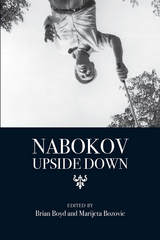
Nabokov Upside Down brings together essays that explicitly diverge from conventional topics and points of reference when interpreting a writer whose influence on contemporary literature is unrivaled. Scholars from around the world here read Nabokov in terms of bodies rather than minds, belly-laughs rather than erudite wit, servants rather than master-artists, or Asian rather than Western perspectives. The first part of the volume is dedicated to surveys of Nabokov’s oeuvre that transform some long-held assumptions concerning the nature of and significance of his work.
Often thought of as among the most cerebral of artists, Nabokov comes across in these essays as profoundly aware of the physical world, as evidenced by his masterly representation of physical movement, his bawdy humor, and his attention to gustatory pleasure, among other aspects of his writing. The volume’s second half focuses on individual works or phases in Nabokov’s career, noting connections among them as well as to other fields of inquiry beyond literature. Engaged in conversation with each other and, in his editorial comments, with Brian Boyd, the essays in this volume show Nabokov scholarship continuing to renew itself.
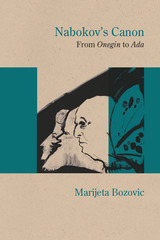
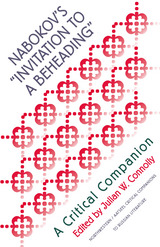
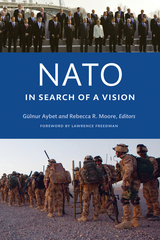
As the NATO Alliance enters its seventh decade, it finds itself involved in an array of military missions ranging from Afghanistan to Kosovo to Sudan. It also stands at the center of a host of regional and global partnerships. Yet, NATO has still to articulate a grand strategic vision designed to determine how, when, and where its capabilities should be used, the values underpinning its new missions, and its relationship to other international actors such as the European Union and the United Nations.
The drafting of a new strategic concept, begun during NATO’s 60th anniversary summit, presents an opportunity to shape a new transatlantic vision that is anchored in the liberal democratic principles so crucial to NATO’s successes during its Cold War years. Furthermore, that vision should be focused on equipping the Alliance to anticipate and address the increasingly global and less predictable threats of the post-9/11 world.
This volume brings together scholars and policy experts from both sides of the Atlantic to examine the key issues that NATO must address in formulating a new strategic vision. With thoughtful and reasoned analysis, it offers both an assessment of NATO’s recent evolution and an analysis of where the Alliance must go if it is to remain relevant in the twenty-first century.

NATO’s 2010 Strategic Concept officially broadened the alliance’s mission beyond collective defense, reflecting a peaceful Europe and changes in alliance activities. NATO had become an international security facilitator, a crisis-manager even outside Europe, and a liberal democratic club as much as a mutual-defense organization. However, Russia’s re-entry into great power politics has changed NATO’s strategic calculus.
Russia’s aggressive annexation of Crimea in 2014 and its ongoing military support for Ukrainian separatists dramatically altered the strategic environment and called into question the liberal European security order. States bordering Russia, many of which are now NATO members, are worried, and the alliance is divided over assessments of Russia’s behavior. Against the backdrop of Russia’s new assertiveness, an international group of scholars examines a broad range of issues in the interest of not only explaining recent alliance developments but also making recommendations about critical choices confronting the NATO allies. While a renewed emphasis on collective defense is clearly a priority, this volume’s contributors caution against an overcorrection, which would leave the alliance too inwardly focused, play into Russia’s hand, and exacerbate regional fault lines always just below the surface at NATO. This volume places rapid-fire events in theoretical perspective and will be useful to foreign policy students, scholars, and practitioners alike.

In four elegant chapters, Robert Alter explains the prismlike radiance created by the association of three modern masters: Franz Kafka, Walter Benjamin, and Gershom Scholem. The volume pinpoints the intersections of these divergent witnesses to the modern condition of doubt, the no-man’s-land between traditional religion and modern secular culture.
Scholem, the devoted Zionist and master historian of Jewish mysticism, and Benjamin, the Marxist cultural critic, dedicated much of their thought and correspondence to Kafka, the explorer in fiction of radical alienation. Kafka’s sense of spiritual complexities was an inspiration to both thinkers in their resistance to the murderous simplification of totalitarian ideology. In Necessary Angels, Alter uncovers a moment when the future of modernism is revealed in its preoccupation with the past. The angel of the title is first Kafka’s: on June 25, 1914, the writer recorded in his diary a dream vision of an angel that turned into the painted wooden figurehead of a ship. In 1940, at the end of his life, Walter Benjamin devoted the ninth of his Theses on the Philosophy of History to a meditation on an angel by the artist Paul Klee, first quoting a poem he had written on that painting. In Benjamin’s vision, the figure from Klee becomes an angel of history, sucked into the future by the storm of progress, his face looking back to Eden. Benjamin bequeathed the Klee oil painting to Scholem; it hung in the living room of Scholem’s home on Abarbanel Street in Jerusalem until 1989, when his widow placed it in the Israel Museum.
Alter’s focus on the epiphanic force of memory on these three great modernists shows with sometimes startling, sometimes prophetic clarity that a complete break with tradition is not essential to modernism. Necessary Angels itself continues the necessary discovery of the future in the past.
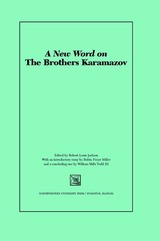
Edited by the nation's most respected senior Dostoevsky scholar, this collection brings together original work by notable writers of varying backgrounds and interests. While drawing on Dostoevsky's other fiction, journalism, and correspondence, the writing of his contemporaries, the state of Russian culture to illuminate the unfolding novel--these essays also make use of new fields of scholarship, such as cognitive psychology, as well as recent theoretical approaches and critical insights. The authors propose readings remarkable for their attentiveness to detail, relatively peripheral characters, and heretofore overlooked incidents, passages, or fragments of dialogue. Some contributors suggest readings so new that they are subvert our usual modes of approaching this novel; all reflect the immediacy of adventuresome, informed encounters with Dostoevsky's final novel. Treating The Brothers Karamazov in terms of a broad range of genres (poetry, narrative, parody, confession, detective fiction) and discourses (medical, scientific, sexual, judicial, philosophical, and theological), these essays embody on a critical and analytic level a search for coherence, meaning, and harmony that continues to animate Dostoevsky's novel in our day.
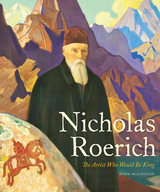
Russian painter, explorer, and mystic Nicholas Roerich (1874–1947) ranks as one of the twentieth century’s great enigmas. Despite mystery and scandal, he left a deep, if understudied, cultural imprint on Russia, Europe, India, and America. As a painter and set designer Roerich was a key figure in Russian art. He became a major player in Diaghilev’s Ballets Russes, and with Igor Stravinsky he cocreated The Rite of Spring, a landmark work in the emergence of artistic modernity. His art, his adventures, and his peace activism earned the friendship and admiration of such diverse luminaries as Albert Einstein, Eleanor Roosevelt, H. G. Wells, Jawaharlal Nehru, Raisa Gorbacheva, and H. P. Lovecraft.
But the artist also had a darker side. Stravinsky once said of Roerich that “he ought to have been a mystic or a spy.” He was certainly the former and close enough to the latter to blur any distinction. His travels to Asia, supposedly motivated by artistic interests and archaeological research, were in fact covert attempts to create a pan-Buddhist state encompassing Siberia, Mongolia, and Tibet. His activities in America touched Franklin Delano Roosevelt’s cabinet with scandal and, behind the scenes, affected the course of three US presidential elections.
In his lifetime, Roerich baffled foreign affairs ministries and intelligence services in half a dozen countries. He persuaded thousands that he was a humanitarian and divinely inspired thinker—but convinced just as many that he was a fraud or a madman. His story reads like an epic work of fiction and is all the more remarkable for being true. John McCannon’s engaging and scrupulously researched narrative moves beyond traditional perceptions of Roerich as a saint or a villain to show that he was, in many ways, both in equal measure.
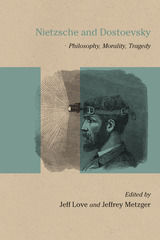

Though steeped in history, his stories pluck from obscurity the little people history ignores—and, in the Soviet Union of Stalin, often crushed. In the complex "Captain Dikshtein," a fictional account of an incident in the 1921 Kronstad, Kuraev evokes life within Soviet military culture and draws a vivid, difficult portrait of one particular life amid the ships and artillery. In "Night Patrol," a lowly member of the Soviet secret police narrates his evening rounds, interspersing the nightly arrests with reflections on his long career in the KGB. In "Petya on His Way to the Heavenly Kingdom," set in a construction site for a hydroelectric dam near Murmansk, a soldier’s murder of the village simpleton resonates through a small community committed to an enormous and enormously dubious technological project. Ranging over a broad landscape of historical foibles, Kuraev’s sympathetic wit and satiric brilliance have invited comparison to Gogol, but are finally unique. In this book, English-reading audiences will discover a new and challenging voice in a tradition that has given the world some of its greatest stories.
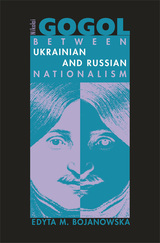
No other writer captured the fraught relations between Ukrainian and Russian nationalisms with as much complexity and lasting relevance as Nikolai Gogol. This pathbreaking book illuminates the deep cultural stakes of today’s geopolitical conflict.
The nineteenth-century author Nikolai Gogol occupies a key place in the Russian cultural pantheon as an ardent champion of Russian nationalism. Indeed, he created the nation’s most famous literary icon: Russia as a rushing carriage, full of elemental energy and limitless potential.
In a pathbreaking book, Edyta M. Bojanowska topples the foundations of this russocentric myth of the Ukrainian-born writer, a myth that has also dominated his Western image. She reveals Gogol’s creative engagement with Ukrainian nationalism and calls attention to the subversive irony and ambiguity in his writings on Russian themes. While in early writings Gogol endowed Ukraine with cultural wholeness and a heroic past, his Russia appears bleak and fractured. Russian readers resented this unflattering contrast and called upon him to produce a brighter vision of Russia. Gogol struggled to satisfy their demands but ultimately failed.
In exploring Gogol’s fluctuating nationalist commitments, this book traces the connections and tensions between the Russian and Ukrainian nationalist paradigms in his work, and situates both in the larger imperial context. In addition to radically new interpretations of Gogol’s texts, Bojanowska offers a comprehensive analysis of his reception by contemporaries.
Brilliantly conceived and masterfully argued, Edyta Bojanowska fundamentally changes our understanding of this beloved author and his place in Russian literature.
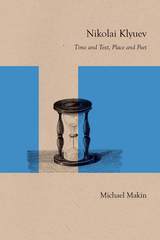
Nikolai Klyuev is the first book in English to examine the life and work of this enigmatic poet. Klyuev (1884–1937) rose to prominence in the early twentieth century as the first of the so-called "new peasant poets" but later fell victim to Stalinist hostility to both his cultural ideology and his homosexuality. He was arrested and exiled in 1933, then shot in 1937.
Klyuev’s work incorporates rich elements of folklore, mysticism, politics, and religion, and he sometimes invokes arcane Russian syntax and vocabulary. Makin’s feat is particularly notable because Klyuev was often elusive in his own accounts of his life, and Makin successfully brings into focus the poet’s deliberate strategies of self-mythologization. Nikolai Klyuev is an indispensable guide to the life and the work of an important poet winning wider recognition outside of Russia.
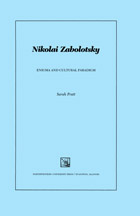
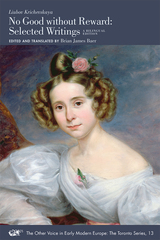
—Helena Goscilo
Chair and Professor of Slavic, The Ohio State University
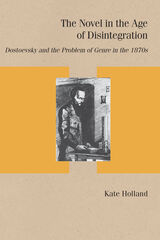
In thoughtful readings of Demons, The Adolescent, A Writer’s Diary, and The Brothers Karamazov, Holland delineates Dostoevsky’s struggle to adapt a genre to the reality of the present, with all its upheavals, while maintaining a utopian vision of Russia’s future mission.
READERS
Browse our collection.
PUBLISHERS
See BiblioVault's publisher services.
STUDENT SERVICES
Files for college accessibility offices.
UChicago Accessibility Resources
home | accessibility | search | about | contact us
BiblioVault ® 2001 - 2024
The University of Chicago Press









